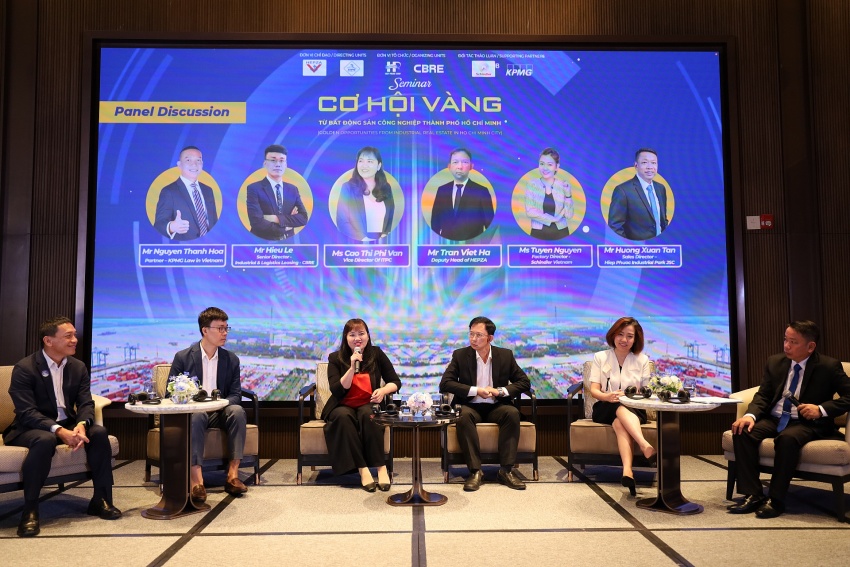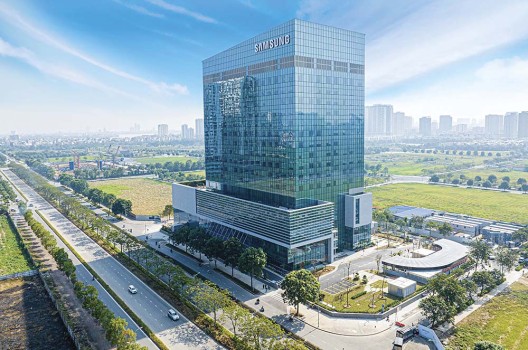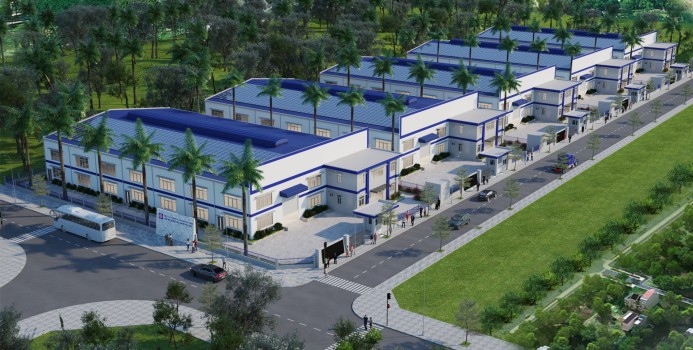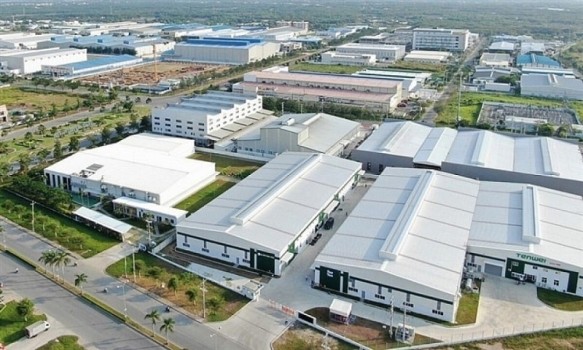HO CHI MINH CITY MERGER PAVES WAY FOR REAL ESTATE BOOM
At a real estate seminar in Ho Chi Minh City on July 17, Cao Thi Phi Van, deputy director of the Investment and Trade Promotion Centre (ITPC), said, "Ho Chi Minh City now boasts the financial and commercial strength of a national economic hub, the advanced industrial engine of Binh Duong, and the port logistics ecosystem alongside agricultural and coastal tourism potential from Ba Ria-Vung Tau."

"The diversified economic structure after the merger creates vast development opportunities for industrial real estate. Each sub-region has a clearly defined development orientation based on its inherent strengths," she added.
According to Tran Viet Ha, deputy head of the Ho Chi Minh City Export Processing and Industrial Zones Management Authority (HEPZA), the city offers a stable, streamlined, and appealing investment environment.
"This is underpinned by the continued implementation of new policies under Resolution No.98/2023/QH1 and related legislative frameworks aimed at driving private-sector growth and meeting national development goals in the new era," Ha said.
He further noted that this is a golden opportunity for global investors to pour capital into high-tech, knowledge-based sectors such as smart manufacturing, AI, semiconductors, biotechnology, smart cities, and green, sustainable solutions.
The city is currently piloting a transition model to convert some traditional industrial and export processing zones into ecological industrial zones (IZs), encouraging businesses to join symbiotic value chains and adopt circular economy principles.
Talking with VIR on the sidelines of the conference, Huynh Bao Duc, general director of Hiep Phuoc Industrial Park, highlighted the park’s strategic location near seaports and expressways, offering strong connectivity to other economic zones.
According to Duc, Ho Chi Minh City is rolling out a range of incentives to draw in more investment to the park. These include a streamlined investment licensing process, cutting approval times from two weeks to just seven days, with a target of one to three days – alongside preferential tax and green credit policies designed to lure investors. The city is prioritising clean and high-tech industries such as pharmaceuticals, food processing, electronics, and furniture manufacturing.
"Hiep Phuoc Industrial Park is being developed as one of Vietnam’s first eco-industrial zones. This transition offers multiple advantages for investors, not only in terms of preferential policies but also by ensuring a green and clean working environment," Duc said, adding that approximately 250 hectares of commercial land remain available to welcome new investors.
Le Trong Hieu, head of Industrial Real Estate at CBRE Vietnam, emphasised that developing eco-industrial zones requires access to renewable energy and carbon-neutral solutions. These goals, he said, need to be supported by state agencies to accelerate the green transition in IZs.
"In the early stages, there will certainly be many challenges," Hieu said. "But this is the right direction, and it must be pursued. Regulations can later be adjusted, for instance, fire safety laws may mandate a specific type of fireproof paint, but if an investor already uses higher-standard materials, they should be accepted."
Vietnam continues to be an attractive destination for industrial real estate investment, particularly following a new wave of global tariffs.
Businesses are maintaining plans to expand operations in Vietnam, targeting both domestic consumption and export markets beyond the United States. In this context, Ho Chi Minh City is emerging as a prime destination thanks to its strategic location, favourable investment climate, and skilled labour force.
Hieu noted that Ho Chi Minh City’s land resources have changed dramatically. From just 2,500 ha of industrial land before the merger, the new metropolis now boasts 27,000 ha.
Land lease prices are approximately $200 per square metre in the former Ho Chi Minh City and around $160 per square metre in the former Binh Duong and Ba Ria-Vung Tau provinces. The availability of vast land banks at more competitive prices in the merged areas presents significant opportunities for investors.
In the first half of the year, the rental warehouse segment in both the northern and southern regions performed well, with around 700,000 sq.m leased.
Rental rates remained stable at $4.90 per sq.m in the north and $5.20 in the south. Modern warehouse supply continues to expand. In 2020, the southern region had around 2.5 million sq.m of modern warehouse space, a figure that is expected to reach 7.3 million sq.m by the second quarter of 2025, driven by strong absorption rates.
According to HEPZA, the newly expanded Ho Chi Minh City now has 66 export processing and IZs, covering over 27,000 ha.
Under the master plan with a vision to 2050, the city aims to develop 105 IZs with a combined area of more than 49,000 ha, solidifying its role as the country’s top industrial centre.
Between 2025 and 2030, the city’s industrial and export processing zones aim to attract between $20 billion and $21 billion in investment, with an average capital density of $8-10 million per hectare.
The city is also targeting disbursement of 70 per cent of total registered investment. Development efforts will prioritise four core industries, focusing on high-tech, high-value, and environmentally friendly segments.
Sources: vir.com.vn
Nguồn:
相关新闻

09/08/2025
VIETNAM AFFIRMS ITS POSITION AS A GLOBAL TRADE AND MANUFACTURING HUB
Vietnam Affirms Its Position as a Global Trade and Manufacturing Hub

09/08/2025
VIET NAM 'S INDUSTRIAL REAL ESTATE RENT HAS INCREASED BY 70%
VIET NAM 'S INDUSTRIAL REAL ESTATE RENT HAS INCREASED BY 70%

09/08/2025
WILL THE DEMAND FOR INDUSTRIAL REAL ESTATE CONTINUE TO RISE ?
Will the Demand for Industrial Real Estate Continue to Rise?

09/08/2025
U.S. RECIPROCAL TARIFFS OFFICIALLY TAKE EFFECT
U.S. RECIPROCAL TARIFFS OFFICIALLY TAKE EFFECT
Copyright © 2022 Viet Huong IP., Ltd. All Rights Reserved
TOP



